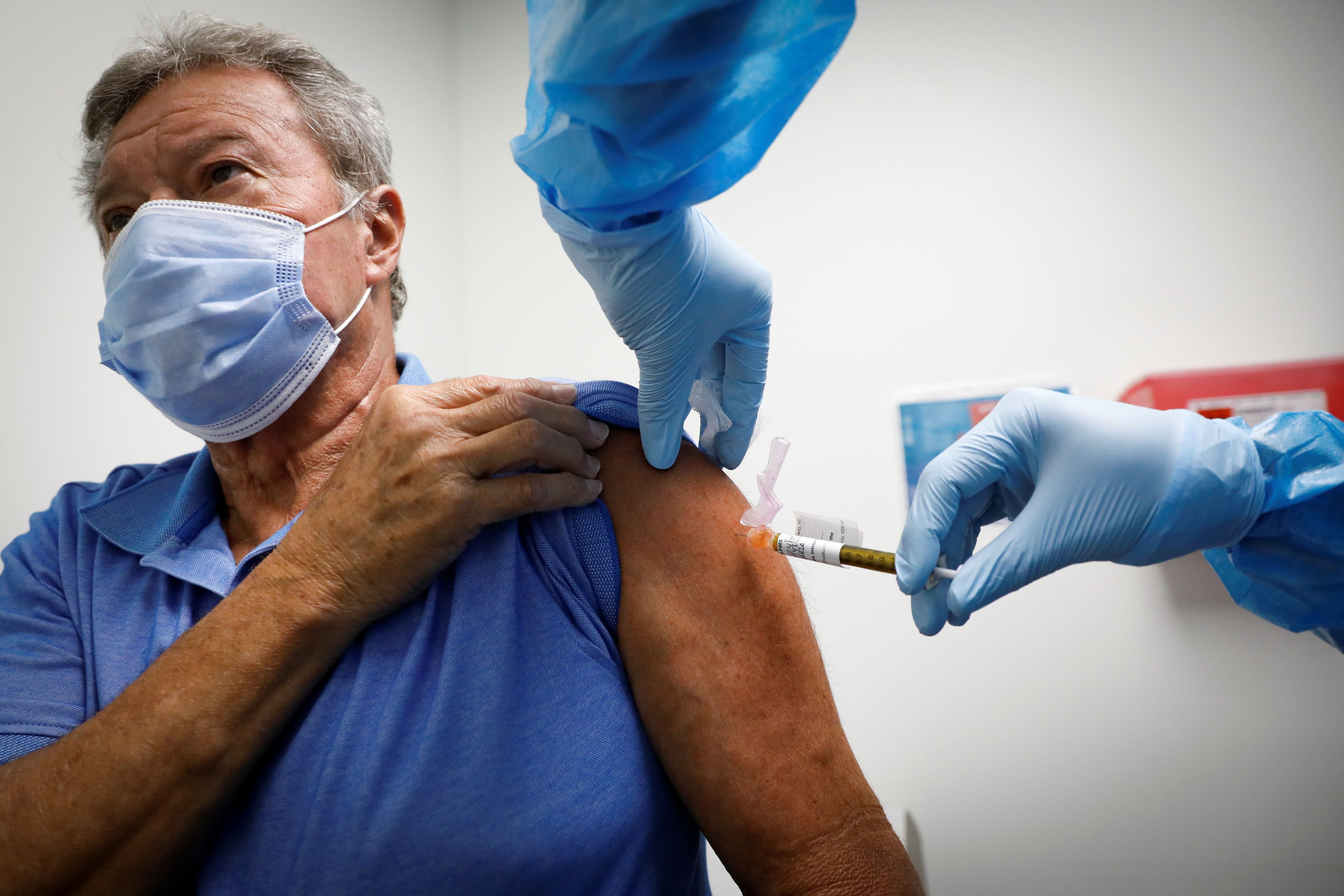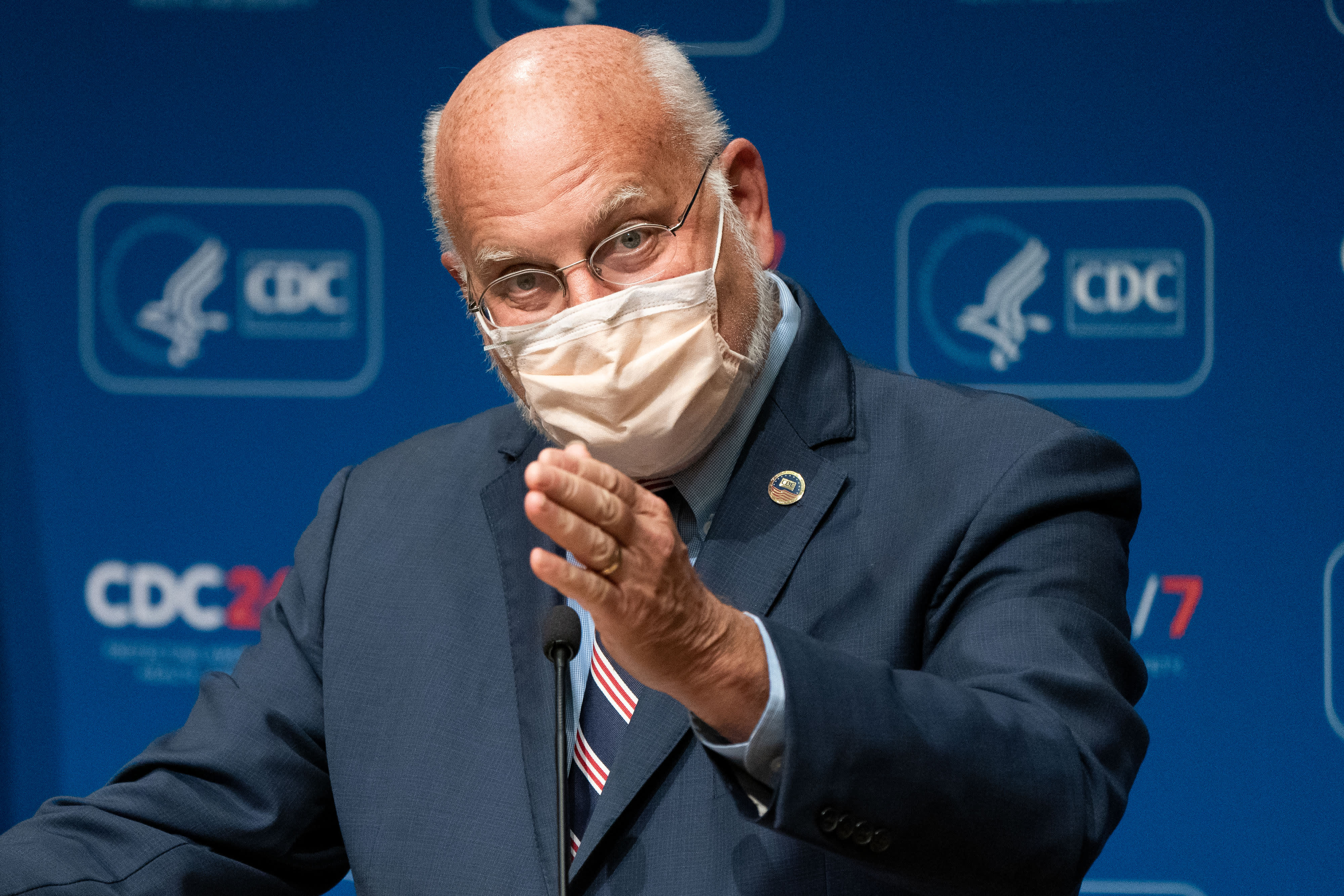Chicago's top doctor said the city plans to make vaccine data, including information on potential side effects, available for residents before rolling out doses to the public.
According to Chicago Department of Public Health Commissioner Dr. Allison Arwady, the city could have its first doses by the end of the year, with frontline workers in the healthcare industry and first responders among the first to receive them.
"We will be absolutely transparent with you about what we know about these vaccines as soon as we know," Arwady said.
Pfizer and BioNTech have applied for an emergency use authorization from the Food and Drug Administration for their coronavirus vaccine. According to Arwady, the agency is set to discuss the matter during a meeting on Dec. 10.
"We will be sharing, and this will be made public immediately upon conclusion of that meeting, the data that that team and the external experts will be using to make an emergency use authorization decision," Arwady said. "There will be additional data related to the trial, related to the demographics of who was in this trial, related to side effects and related to efficacy. The FDA will not approve a vaccine that is not safe, first and foremost, where we are seeing signs of serious side effects, and they will not approve a vaccine that is not at least 50% effective."
The vaccine engineered by Pfizer has seen a 90% efficacy rate in clinical trials.
Another vaccine, engineered by Moderna, has a 94% efficacy rate in clinical trials according to the company, and could follow suit in seeking FDA approval in early December.
Following a potential authorization from the FDA, the CDC will then meet, with a recommendation expected by the Advisory Committee on Immunization Practices, or ACIP, an outside group of medical experts. ACIP is expected to call an emergency meeting to make specific recommendations on distribution once the FDA authorizes a vaccine.
"That committee will continue to meet as additional vaccines come or are put forward for possible approval, or if side effects emerge, or are there any other concerns related to vaccines that are already being distributed," Arwady said.
Should the committee recommend the vaccine, Chicago could begin vaccinating as early as mid-December, Arwady said.
According to Dr. Sandra Fryhofer of the American Medical Association, who is also a liaison to the committee, both Pfizer and Moderna have acknowledged that their vaccines could induce side effects that are similar to symptoms associated with mild COVID-19, such as muscle pain, chills and headache.
They will also require two doses at varying intervals.
"We really need to make patients aware that this is not going to be a walk in the park," Fryhofer said during a virtual meeting with the ACIP, an outside group of medical experts that advise the CDC. "They are going to know they had a vaccine. They are probably not going to feel wonderful. But they've got to come back for that second dose."
Under Illinois' current vaccination plans, healthcare workers and residents of congregate care facilities like senior citizen living centers will be among the first to get the vaccine, with other state residents following as the state receives more doses of the treatment.
Arwady says that the city will follow a similar path, with initial doses going to healthcare workers and to other employees who have been on the front line of the fight against coronavirus.
Arwady said she plans on receiving the vaccine herself once one is approved by ACIP.
The city says it is working on plans to help expedite the process of getting the vaccine out, expanding the capacity of facilities that will store the vaccines at the low temperatures that the drug will require. Even so, officials warn that it will likely be the spring or summer of 2021 before the vaccine is available for widespread distribution.
"I know that this has been a hard year. This is going to be a hard winter," Arwady said. "But I have every confidence, based on what we've seen so far, that 2021 is going to be a combination of rolling out a vaccine over months, pairing that with the things that we already know work to protect against COVID. And I know that here in Chicago, we can do this. We've already shown we can. We've got some early signs of progress right now. If we can hold that, through Thanksgiving, through the early winter here, we'll start being able to pair that with vaccine. And we'll start being able to have much more hopeful updates on progress."



